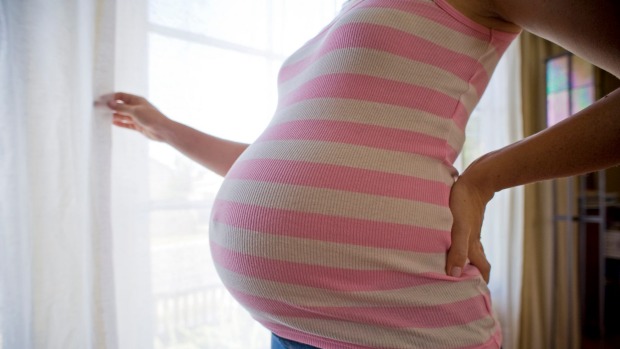
You, and your baby, are what you eat. Photo: Getty Images
Beans, beans, they’re good for your heart … the more you eat, the healthier you and your unborn children are likely to be.
Or that is the suggestion of a study that has found women who consume a Mediterranean diet before they become pregnant are less likely to develop obstetric complications.
University of Queensland researchers interviewed women enrolled in the Longitudinal Study on Women’s Health about their diet and categorised them into four dietary groups:
- meat, high fat, high sugar diet, characterised by meat, processed meat, cakes, biscuits, meat pies and pizza;
- Mediterranean diet, characterised by vegetables, legumes, nuts, tofu, rice, pasta, rye bread, red wine and fish;
- the fruit and low fat dairy diet, with high loadings of low fat yoghurt and cheese, skim milk, fruit; and
- cooked vegetable pattern with high consumption cooked potato, cauliflower, carrots, pumpkin, peas.
It then followed up with more than 3500 women who subsequently became pregnant and delivered at least one live birth between 2003 and 2012.
Those who followed a Mediterranean diet had a 42 per cent lower risk of developing a pregnancy complication such as hypertension or pre-eclampsia compared to women who did not follow the diet.
There was no increased risk among the women following the other dietary patterns.
Lead researcher Danielle Schoenaker said it was surprising that those women whose diets were high in sugar and fat did not have a higher risk of developing pregnancy disorders, but it could be because those women were also consuming lots of fruit and vegetables.
“This study emphasises that a healthy diet is important even before pregnancy,” Ms Schoenaker said.
“The Mediterranean diet is a simple, basic, healthy diet.
“It doesn’t have high carbohydrates or high proteins. It’s just all the foods that are put out in the dietary guidelines.”
Other studies indicate that women’s dietary patterns are set from around the age of 25.
Hypertensive disorders, which are marked by high blood pressure during pregnancy, affect between 5 and 15 per cent of the population.
They can slow the growth of the baby and in severe cases cause vomiting, headaches and abdominal pain in the mother.
The study was published in the American Journal of Clinical Nutrition
